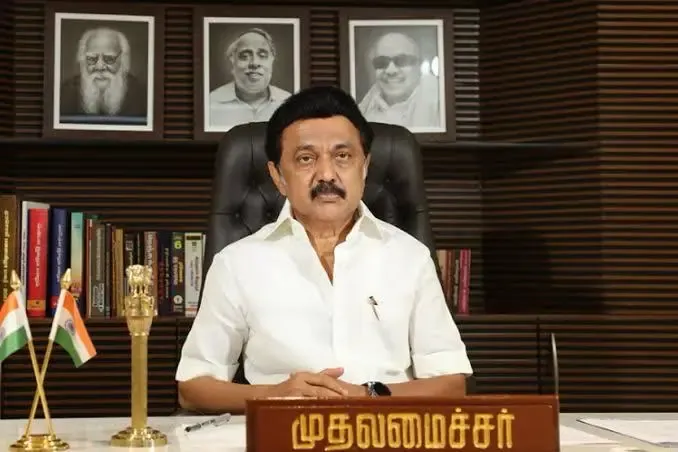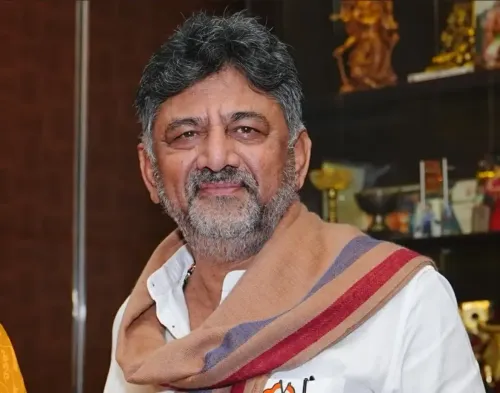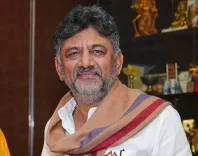Stalin to Lead Consultative Meetings with TN University Chiefs on April 16

Synopsis
Key Takeaways
- Chief Minister M.K. Stalin will meet with university leaders on April 16.
- The meeting aims to improve higher education in Tamil Nadu.
- Recent Supreme Court ruling legitimizes university Bills.
- Ten Acts have been notified as law without assent.
- Upcoming discussions on budget grants for education.
Chennai, April 14 (NationPress) The Chief Minister of Tamil Nadu, M.K. Stalin, is set to convene a consultative meeting on April 16 with the Vice-Chancellors and Registrars of all public universities at the Secretariat, as indicated in a formal announcement made on Monday. This meeting aims to enhance the quality of higher education within the state.
This initiative follows the Supreme Court's significant ruling from the previous week which affirmed that several university-related Bills, which were re-adopted by the Tamil Nadu Assembly and awaiting Presidential approval, are considered approved.
In a pivotal action, the state government officially enacted 10 such Acts on Sunday, allowing them to become law without needing the Governor's or President's assent. This marks the initial batch of Bills to be enacted under the Supreme Court's recent ruling.
While Chief Minister Stalin has previously led meetings with university leaders, this upcoming session holds greater significance due to the recent judicial decision.
The consultative meeting is scheduled right before the Assembly's discussions regarding the budget requests for the Higher Education Department for the fiscal year 2025–26, which is set for April 24.
Department officials have indicated that the enactment of these Acts is poised to bring university leaders, many of whom were appointed by Governor R.N. Ravi, under the administrative purview of the state government.
There have been several occasions where Vice-Chancellors have reportedly disregarded directives from the Higher Education Department. Governor Ravi has consistently advocated for the implementation of the National Education Policy (NEP) 2020, labeling it as "comprehensive, revolutionary, and transformative." However, this perspective contrasts sharply with that of the Tamil Nadu government.
The DMK administration has established a distinct committee to formulate a state-specific education policy. With the new legislation in effect, the Tamil Nadu government is now positioned to appoint Vice-Chancellors to 12 universities that currently have vacant posts. It is anticipated that these appointments will prioritize merit, competence, and integrity, especially in light of past allegations of corruption in the selection process.
The Supreme Court's ruling is perceived not only as a legal landmark but also as a reaffirmation of constitutional ethics and the tenets of cooperative federalism. The apex court commented that a Governor should serve as a "friend, philosopher, and guide" to the state cabinet, rather than acting as an agent of the Union government.









